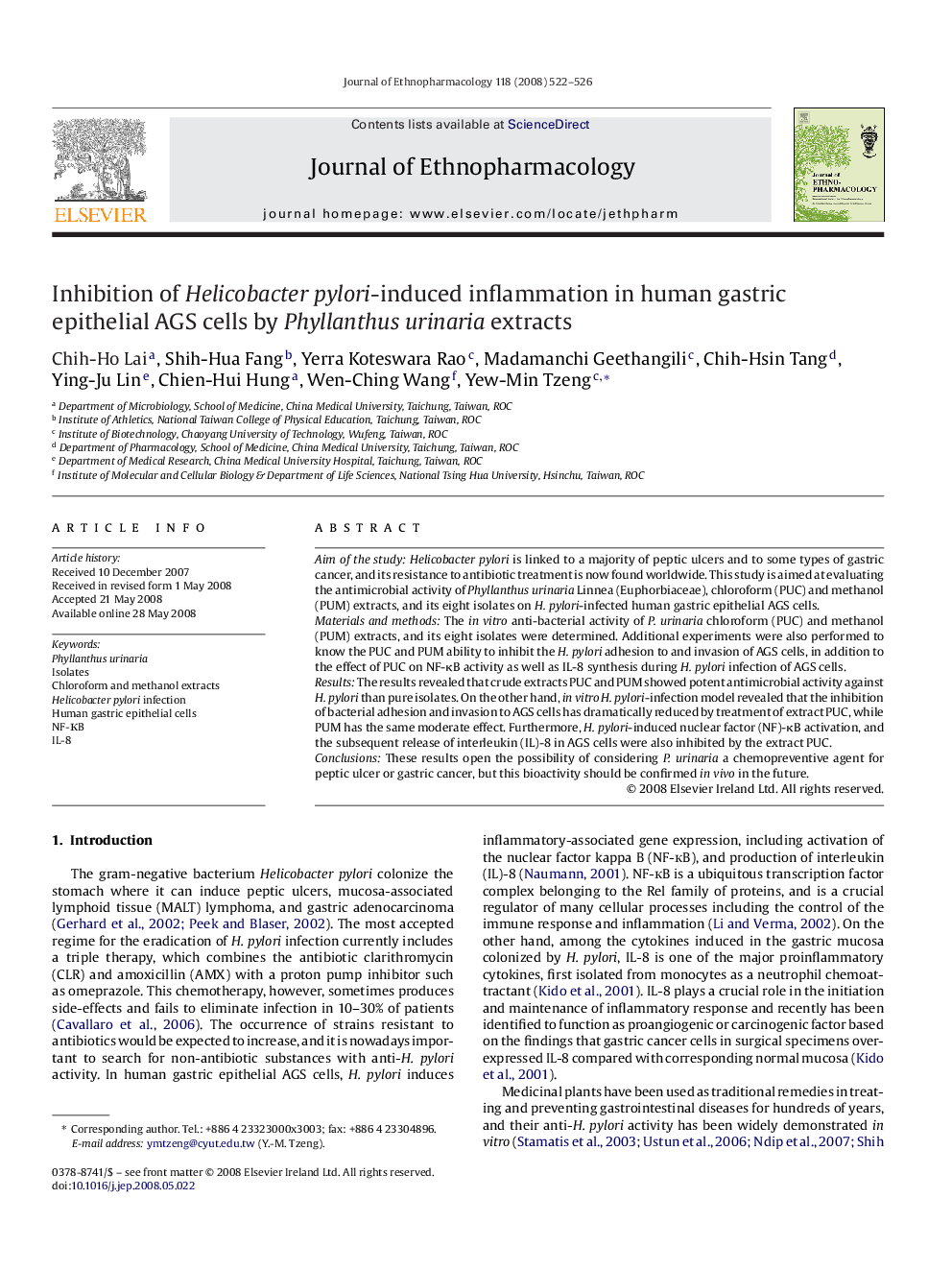| Article ID | Journal | Published Year | Pages | File Type |
|---|---|---|---|---|
| 2546780 | Journal of Ethnopharmacology | 2008 | 5 Pages |
Aim of the studyHelicobacter pylori is linked to a majority of peptic ulcers and to some types of gastric cancer, and its resistance to antibiotic treatment is now found worldwide. This study is aimed at evaluating the antimicrobial activity of Phyllanthus urinaria Linnea (Euphorbiaceae), chloroform (PUC) and methanol (PUM) extracts, and its eight isolates on H. pylori-infected human gastric epithelial AGS cells.Materials and methodsThe in vitro anti-bacterial activity of P. urinaria chloroform (PUC) and methanol (PUM) extracts, and its eight isolates were determined. Additional experiments were also performed to know the PUC and PUM ability to inhibit the H. pylori adhesion to and invasion of AGS cells, in addition to the effect of PUC on NF-κB activity as well as IL-8 synthesis during H. pylori infection of AGS cells.ResultsThe results revealed that crude extracts PUC and PUM showed potent antimicrobial activity against H. pylori than pure isolates. On the other hand, in vitroH. pylori-infection model revealed that the inhibition of bacterial adhesion and invasion to AGS cells has dramatically reduced by treatment of extract PUC, while PUM has the same moderate effect. Furthermore, H. pylori-induced nuclear factor (NF)-κB activation, and the subsequent release of interleukin (IL)-8 in AGS cells were also inhibited by the extract PUC.ConclusionsThese results open the possibility of considering P. urinaria a chemopreventive agent for peptic ulcer or gastric cancer, but this bioactivity should be confirmed in vivo in the future.
